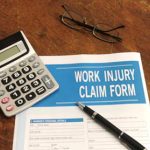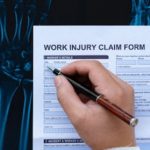Author Archives: Jay Butchko

Common Questions Asked During a Workers’ Compensation Deposition
A deposition is a vital step in the workers’ compensation claims process. This step happens before a case goes to a hearing or trial. The purpose of a workers’ compensation deposition is to gather sworn testimony from the claimant (the injured employee) and other involved parties, such as expert witnesses and eyewitnesses, as part… Read More »

Why Would Your Workers’ Compensation Case Go to Trial?
After suffering work-related injuries or illnesses, employees can turn to workers’ compensation for medical and financial support. Often, workers’ compensation cases in Vermont allow you to secure compensation outside of court. Insurance companies and injured employees often find it mutually beneficial to reach an agreement. However, some cases end up going to trial. Understanding… Read More »

Signs Your Vermont Workers Compensation Claim May Be of High Value
Every year, Vermont records thousands of workplace injuries and illnesses that result in hospitalization and time off from work. According to the U.S. Bureau of Labor Statistics (BLS), in 2020, private industry employers reported 6,900 nonfatal occupational injuries and illnesses in Vermont. After suffering a work-related injury or illness in Vermont, employees can file… Read More »

5 Reasons Workplace Injuries Increase During the Holiday Season
Many people nationwide wind down for the Christmas and New Year holidays to celebrate, laugh, and merry-making with loved ones. However, the holiday season brings increased risks of injuries for many workplaces. Unfortunately, workers may suffer debilitating injuries during the holidays when they are needed the most. There are many reasons why the end… Read More »

Signs of Employer Retaliation After Filing a Workers’ Compensation Claim
It is your legal right to file a workers’ compensation claim after suffering an injury while on the job. Your employer is prohibited from retaliating against you for exercising this legal right. Retaliation is when an employer takes adverse action or punishes a worker for participating in legally protected activity. However, while illegal, some… Read More »

How Does Vocational Rehabilitation Help Injured Workers Return To Work?
Suffering a work-related injury can be devastating. Healing and returning to work are usually the most urgent priorities after a workplace injury. Unfortunately, while some workers heal and return to work within a short time, some are unable to go back to their old jobs after a workplace injury. This can happen when a… Read More »

Common Workplace Injuries Among Office Employees
Industries like construction, agriculture, warehousing, healthcare, manufacturing, and mining are more prone to workplace injuries due to the nature of the work and associated risks. However, workplace injuries can occur in any setting, including an office setting. At first, it might seem like there isn’t much risk associated with working in an office, but… Read More »

How Late Injury Reporting Can Affect Your Vermont Workers’ Compensation Claim
The Vermont workers’ compensation system is designed to provide medical care and financial support to employees who suffer injuries on the job, and the best part is that, like in many other states, Vermont’s workers’ compensation system is a no-fault one, which means employees are not required to prove employer negligence to recover benefits…. Read More »

Understanding Surveillance Tactics Used by Workers’ Compensation Insurance Companies
After filing a workers’ compensation claim, you may be shocked to learn that your employer’s workers’ compensation insurer is surveilling you. You may feel like your privacy is being unfairly invaded. However, workers’ compensation insurance companies are allowed to surveil claimants. What is not permitted is engaging in illegal surveillance tactics. For example, investigators… Read More »

What ‘No-Fault’ Means in Workers’ Compensation: An Explanation
Workers’ compensation is described as a ‘no-fault’ system. Many people are confused by what this means. Understanding what no-fault means in terms of workers’ compensation can make you more knowledgeable and empower you to safeguard your legal rights. Essentially, ‘no-fault’ means that liability is often not considered in workers’ compensation cases. In other words,… Read More »
